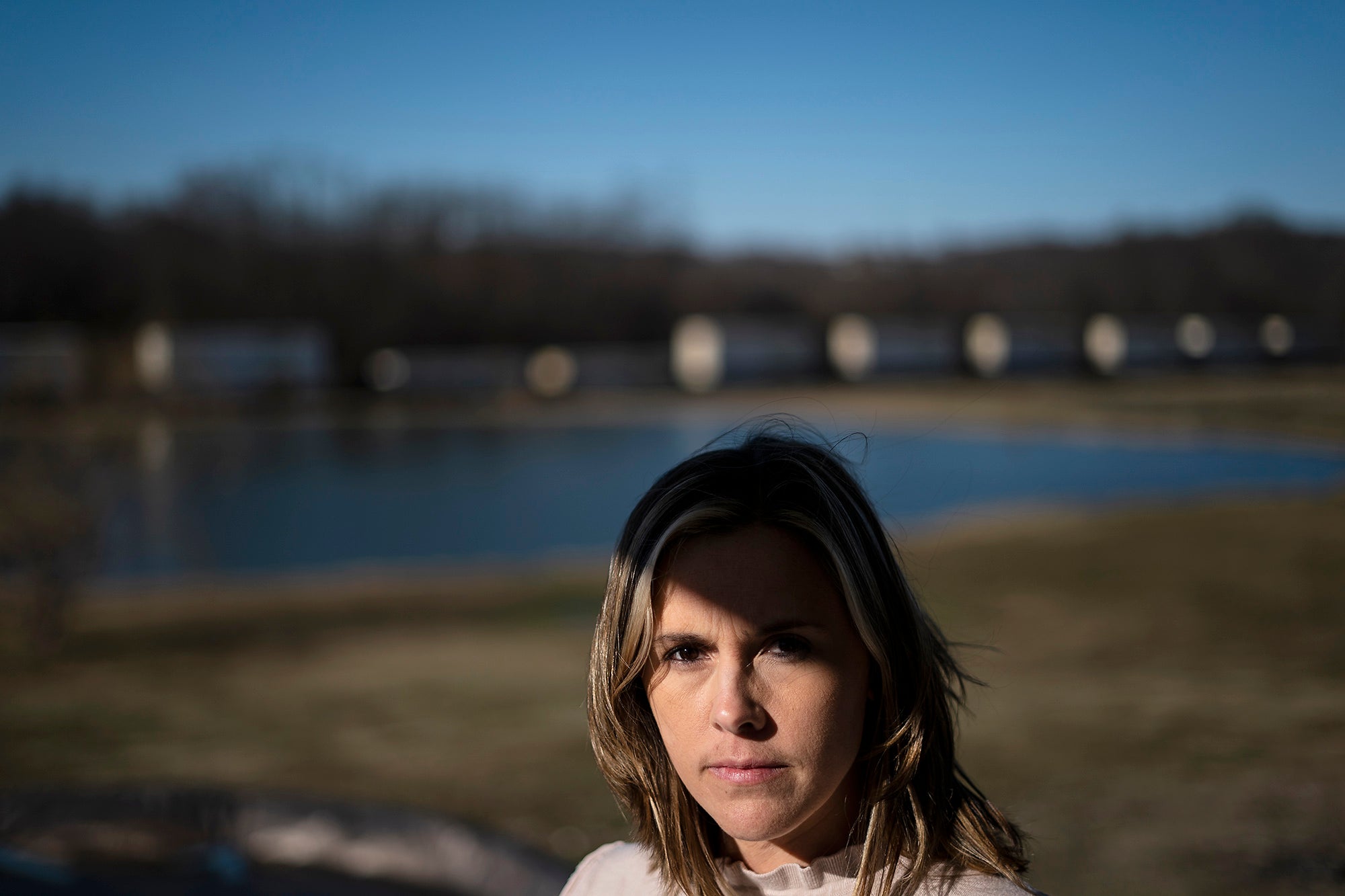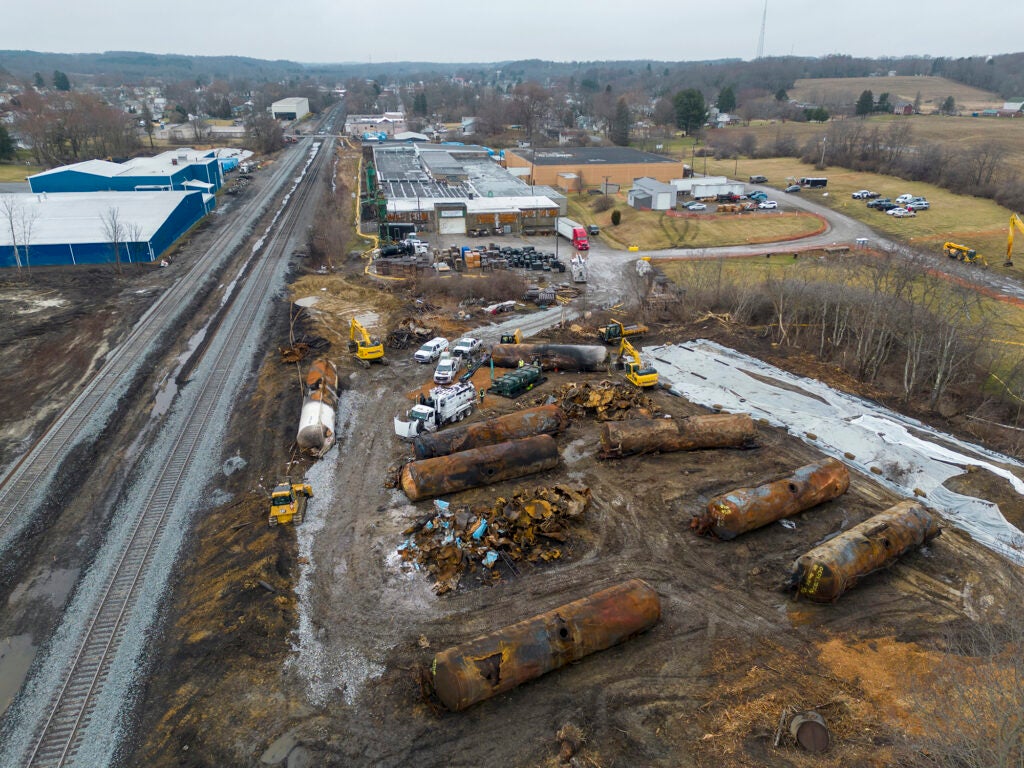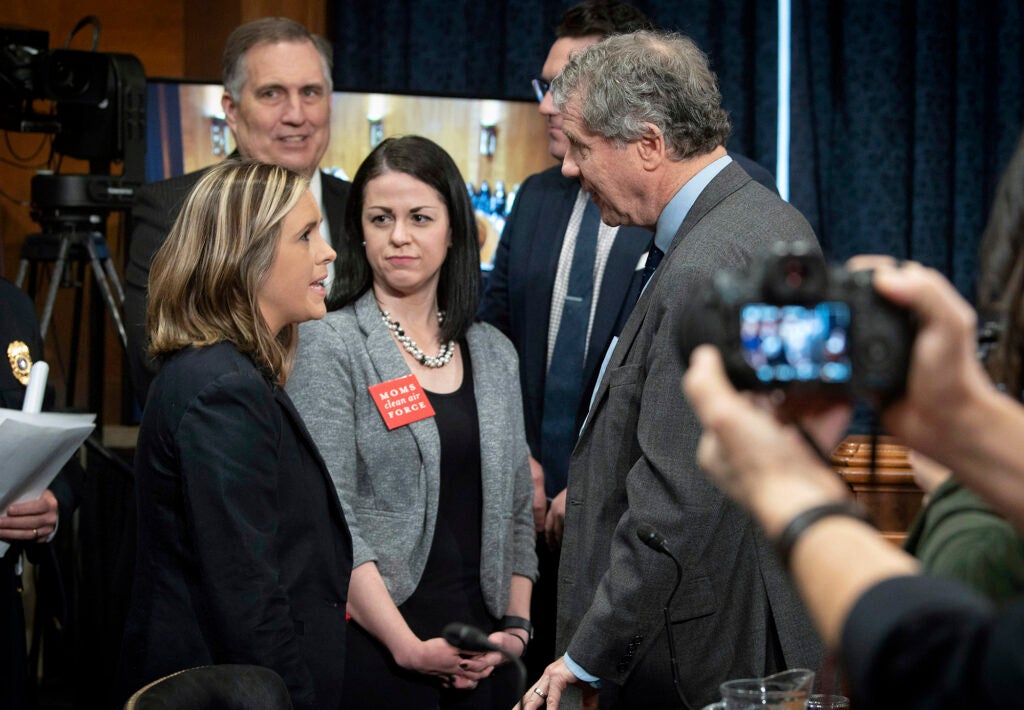A Train Full of Toxic Chemicals Derailed in Her Town. Here’s What Her Community Needs Now.
A year after the disaster in East Palestine, Ohio, advocates are still pushing for much-needed change.

This page was published a year ago. Find the latest on Earthjustice’s work.
Medical speech language pathologist Jessica Conard had recently bought her “forever home” and started a family in East Palestine, Ohio — a town where her roots run deep, with roads named after her family members. Then in February 2023 a train full of toxic chemicals derailed in her community, uprooting residents’ lives and setting her on an unexpected path of advocacy.
A year later, with Biden preparing to visit East Palestine, Conard is reflecting on the progress she and her fellow advocates have made — and the many changes they’re still waiting for.
Soon after the incident, Conard volunteered for the Unity Council for East Palestine Train Derailment. She has worked with Earthjustice and Beyond Plastics to raise awareness about the dangers of transporting toxic chemicals. Conard is now trying to petition the EPA to ban vinyl chloride, a carcinogenic chemical used in plastics production that was on the train. The agency is currently assessing that chemical’s risks. She is also urging President Biden to issue a disaster declaration that would make more resources available for aid.
“It’s been a challenging time, and we want to move on from this, but we need to have our needs met,” Conard says.

Workers clean up the wreckage from a train derailment that spilled toxic chemicals in East Palestine, Ohio on Thursday, February 23, 2023. (Lauren Petracca for Earthjustice)
Conard criticizes Norfolk Southern, the company whose train derailed, highlighting the preventability of the disaster and how it underscores failures of responsibility and safety. The chair of the National Transportation Safety Board, Jennifer Homendy, has also described the incident as “100% preventable,” and an NTSB investigation is ongoing. Conard’s frustration is palpable as she demands the same level of treatment and safety that should be accorded to all communities who feel they have been exposed to the hazardous chemical spill and burn.
“You can draw a straight line from the train derailment to plastic production,” says Conard. “Vinyl chloride uprooted my community. We wouldn’t be in this position if companies were delivering something safe.”
Despite multiple agencies participating in remediation efforts, Conard notes that the process is far from complete. Miscommunication has sown distrust and division within the community, not out of animosity but from confusion and fear for health and safety. Conard says the community needs full financial compensation, assistance for permanent relocation, a robust medical program, and ongoing environmental assessment. These needs, she argues, would be addressed with the signing of the disaster declaration.
Conard sees the East Palestine disaster not just as a local issue but as a catalyst for broader change in how we handle and regulate dangerous chemicals like vinyl chloride. She hopes the EPA’s assessment of vinyl chloride will lead to a high priority designation that could spark meaningful change. Her message is clear: East Palestine’s story should not just be a sad tale but a wake-up call for the need for safer, more responsible industrial practices.

Sen. Sherrod Brown, D-Ohio, right, talks with East Palestine residents Jessica Conard, left, and Misti Allison, center, before a Senate Environment and Public Works Committee hearing in Washington D.C. to examine protecting public health and the environment in the wake of the Norfolk Southern train derailment in East Palestine. (Kevin Wolf / AP)
As Conard continues her advocacy, she underscores the importance of President Biden’s recognition of the situation and the need for him to bring resources to the table. Her journey from a speech pathologist to an environmental activist exemplifies the power of individual action in the face of adversity. Conard’s story is a testament to the resilience of the communities that chemical-carry trains pass through and a reminder of the ongoing fight for environmental justice and safety.
In the wake of the disaster, Conard is working not just for the healing of her community but for a future where government can avert such disasters through foresight, responsibility, and respect for the environment and human life.
Earthjustice’s Toxic Exposure & Health Program uses the power of the law to ensure that all people have safe workplaces, neighborhoods, and schools; have access to safe drinking water and food; live in homes that are free of hazardous chemicals; and have access to safe products.